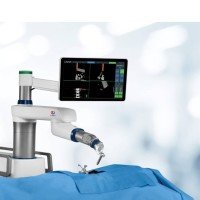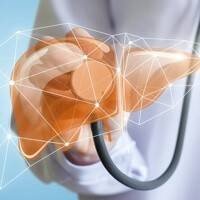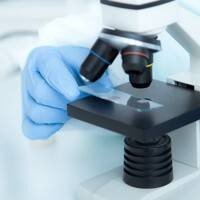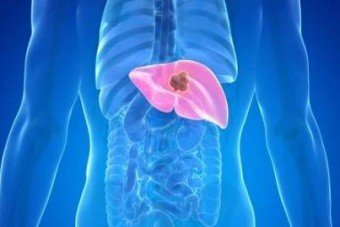香港では、肝臓がんは男性で4番目、女性で12番目に多いがんです。病院局の香港がん登録によると、2022年の新規症例は1612件で、男性が1173件、女性が439件と、男女比は約2.7対1。 75歳以前の肝臓がんの累積リスクは、男性が54人に1人、女性が291人に1人です。診断年齢の中央値は、男性で66歳、女性で73歳です。
肝臓がんでは、年齢標準化された発生率の急速な減少が観察された。過去10年間の平均では、年齢標準化罹患率は、男性で2.3%、女性で4.8%、1年ごとに減少している。
成人の原発性肝がんには、肝細胞がん(HCC)と胆管がん(胆管がん)の2種類があります。成人原発性肝がんの中で最も多いのは肝細胞がんです。
Liver Cancer Incidence and Survival Rates
Liver cancer is one of the most common malignant tumors worldwide, with particularly high incidence rates in Asia. As part of Asia, Hong Kong also experiences elevated liver cancer incidence and mortality rates. According to data from the Hong Kong Cancer. Registry in 2022, liver cancer ranks third among the top ten causes of cancer deaths in Hong Kong, surpassed only by lung cancer and colorectal cancer. This highlights the significant threat liver cancer poses to public health.
Survival Rates
The survival rate for liver cancer is closely tied to the stage at which it is detected. Patients diagnosed with early-stage liver cancer who undergo appropriate treatments, such as surgical resection or liver transplantation, can achieve a five-year survival rate of 50% to 70%. However, because liver cancer often presents no noticeable symptoms in its early stages, many patients are diagnosed at an advanced stage, significantly reducing treatment effectiveness and survival rates. The five-year survival rate for patients with advanced liver cancer is typically below 10%.
原因
肝癌の原因:
- 肝硬変
- B型肝炎やC型肝炎の感染症
- 長期に渡るアルコール依存
- アフラトキシンが混入した食物の摂取
- 血色症(ヘモクロマト-シス)
- ある特定の物質を含む経口避妊薬の服用
- 潰瘍性大腸炎
- 肝吸虫
- 毒素を含む食物の摂取
- 長期的に特殊な環境や汚染物質にさらされること
- 胆道炎や総胆管のう胞
症状
早期の肝癌の場合、症状が顕著に出ないことがあります。腫瘍が大きくなるにつれ、以下のような症状も出ることがあります。
- 食欲不振、著しい体重の減り
- 上腹部と右肩の痛み
- 上腹部の痛み、不快感、しこり
- 黄疸、肌や目が黄色くなる
- 茶褐色の尿、粘土色の便が出る
- 腹水(腹腔に水がたまる)
しかし、これらの症状は肝癌特有のものではありません。上記の症状が出た場合、過度に心配せずなるべく早く医師の診察を受けてください。病気の進行を防ぐために必要な診断や治療を早期に受けることができます。
検査と診断
肝癌に発展するリスクが高い方は定期検診を受けると良いでしょう。高齢者や慢性肝臓疾患をお持ちの方も対象となります。検査内容は以下の通りです。
- 肝臓の超音波
- 血液検査(AFP)
- CTスキャン
- MRI
- 血管造影
- 腹腔鏡検査
- 肝臓の生体検査
- ICG検査
検査の中でもICG検査は肝癌の手術を受けるにあたりとても重要です。この検査は主に肝臓の解毒と代謝機能を調べるもので、医師が肝臓の状態を正確に予測し手術のリスクを評価することができます。
治療
肝癌の治療法は、腫瘍の種類、大きさ、場所、転移の度合いに加え、患者様の年齢や体調なども考え合わせて判断していきます。
外科手術
外科手術は腫瘍と肝臓の一部を切除することで癌を治します。以前は主に開腹手術(従来の方法)で行われていましたが、最近では低侵襲手術での肝癌切除が多くなりました。腹腔鏡、ロボットアーム、高周波焼灼療法で低侵襲手術を行った場合、傷口から引き起こされる合併症を減らすことができ、術後も2~3日程度で退院できます。
肝移植(かんいしょく
肝臓をすべて摘出し、健康な提供された肝臓と取り替える方法です。病気が肝臓だけにあり、提供された肝臓が見つかる場合に行われることがあります。提供された肝臓を待たなければならない場合は、必要に応じて他の治療が行われます。
アブレーション(焼灼)療法
アブレーション療法は、組織を除去または破壊する治療法です。肝臓がんには、さまざまな種類の焼灼療法が用いられます。
- ラジオ波焼灼療法
- マイクロ波治療
- 経皮的エタノール注入法
- 凍結融解療法(クライオアブレーション
- エレクトロポレーション療法
塞栓療法
塞栓療法とは、肝動脈から腫瘍への血流を遮断・減少させる物質を使用する治療法です。腫瘍に必要な酸素や栄養が行き渡らなくなれば、腫瘍は成長を続けることができなくなります。
塞栓療法には、大きく分けて3つの種類があります。
- 経動脈的塞栓療法(TAE)。内股に小さな切り込みを入れ、カテーテル(細くしなやかな管)を肝動脈に挿入し、糸でつなぎます。カテーテルを留置した後、肝動脈を塞いで腫瘍への血流を停止させる物質を注入する。
- 肝動脈化学塞栓療法(TACE)。抗がん剤を投与する以外は、TAEと同様の方法です。
- 放射性塞栓療法:90-Y標識したマイクロスフィアを動脈内に注入し、腫瘍を広範囲に壊死させるもので、安全性は問題ない。
標的治療
標的療法は、薬物などを用いて特定のがん細胞を識別し、攻撃する治療法の一種です。標的療法は通常、化学療法や放射線療法よりも正常な細胞への害が少ない。チロシンキナーゼ阻害剤は、成人の原発性肝がんの治療に用いられる標的療法の一種です。ソラフェニブ、レンバチニブ、レゴラフェニブ、カボザンチニブなどは、進行性肝がんの治療に用いられるチロシンキナーゼ阻害剤の一種です。
免疫療法
免疫療法は、患者さんの免疫系を利用してがんと闘う治療法です。体内で作られる物質や実験室で作られる物質を用いて、がんに対する体の自然な防御力を高めたり、誘導したり、回復させたりします。免疫チェックポイント阻害療法は、進行・再発の肝がんの治療によく用いられる免疫療法の一種です。
放射線療法
放射線療法は、高エネルギーのX線やその他の放射線を用いて、がん細胞を死滅させたり、増殖を抑えたりするがん治療法です。放射線療法には2つの種類があります。
- 外部照射療法は、体の外部にある装置を使用して、がんがある部位に向けて放射線を照射するものです。
- 内部放射線療法では、放射性物質を針やシード、ワイヤー、カテーテルに封入して、がんの中や近くに直接留置します。
Personal Care After Liver Cancer Surgery
- Dietary Adjustments
Post-surgery, the diet should focus on high-protein, easily digestible foods, with an emphasis on fresh vegetables and fruits rich in vitamins and minerals to promote tissue repair and boost immunity. - Lifestyle Habits
Maintain a regular schedule, avoid staying up late and intense exercise, but engage in moderate walking to promote blood circulation. - Psychological Adjustment
Psychological adjustment is equally important. Maintain an optimistic mindset and communicate effectively with family to gain sufficient support. - Regular Check-ups
Strictly follow the doctor’s recommendations for postoperative check-ups and follow-ups. Pay attention to your physical condition and seek medical attention immediately if you experience any discomfort. - Medication Use
When it comes to medication, follow the doctor’s instructions carefully. Avoid adjusting the dosage or stopping medication on your own, and refrain from using any medications that may harm the liver. - Wound Care
Postoperative wound care should not be neglected. Keep the wound dry and clean, avoid getting it wet, and closely monitor the healing process. If any abnormalities occur, seek medical attention promptly.
Liver Cancer Prevention Methods
Liver cancer is a high-risk and difficult-to-detect malignant tumor, making prevention crucial. By adopting a healthy lifestyle, undergoing regular screenings, and avoiding high-risk factors, the incidence of liver cancer can be effectively reduced.
- Hepatitis B Vaccination
Receiving the hepatitis B vaccine is one of the key measures for preventing liver cancer. It effectively reduces the risk of hepatitis B infection, which in turn lowers the likelihood of developing liver cancer. - Regular Health Check-ups
Routine liver function tests and imaging examinations are essential for early detection of liver cancer. This is particularly important for individuals with risk factors, such as hepatitis B or C patients and those with liver cirrhosis. It is recommended that they undergo relevant screenings every six months. - Healthy Diet
Maintaining a healthy weight is a crucial aspect of preventing liver cancer. Obesity is linked to non-alcoholic fatty liver disease (NAFLD), which can progress to steatohepatitis, cirrhosis, and even liver cancer. Therefore, adopting a healthy lifestyle, such as quitting smoking and drinking, maintaining a balanced diet, and engaging in regular exercise, can effectively reduce the risk of liver cancer. - Avoid Long-term Use of Liver-Damaging Medications
Some medications can cause harm to the liver, so it is important to avoid the long-term use of drugs that may be detrimental to liver health, such as certain pain relievers, steroids, and some traditional herbal remedies. Before taking any medication, consult a doctor to ensure safety, and avoid using unknown or unverified supplements to prevent the intake of harmful substances that could affect liver health.
FAQ
What to Do if Initial Signs of Liver Cancer Are Detected?
Liver cancer often does not present obvious symptoms in its early stages. However, as the disease progresses, some nonspecific symptoms may arise, such as pain in the upper right abdomen, loss of appetite, fatigue, jaundice, and weight loss. If these symptoms occur, especially in individuals at high risk for liver cancer, such as those with chronic hepatitis B or C infections or liver cirrhosis—it is crucial to seek medical attention immediately for a thorough examination. It is recommended to undergo tests such as alpha-fetoprotein (AFP) measurement and liver ultrasound to identify any issues as early as possible.
What to Pay Attention to in Daily Life After a Liver Cancer Diagnosis?
After being diagnosed with liver cancer, patients should pay special attention to the following aspects of their daily life:
Dietary Adjustments: Maintain a balanced diet, consume plenty of fresh vegetables and fruits, and reduce intake of high-fat, high-sugar, and greasy foods.
Avoid Harmful Substances: Quit smoking and drinking alcohol, and avoid exposure to harmful substances such as aflatoxins.
Regular Check-ups: Follow the doctor’s recommendations for regular liver function tests and imaging scans to promptly detect and address potential issues.
Psychological Adjustment: Stay optimistic, avoid excessive anxiety and depression, and maintain good communication with family.
Medication Adherence: Strictly follow the doctor’s prescribed medication regimen, and do not adjust the dosage or stop taking medication without consultation.
Is the Recurrence Rate of Liver Cancer High?
The recurrence rate of liver cancer is relatively high, with an overall 5-year recurrence rate of 50% to 70% after surgical resection. High-risk factors for recurrence include liver cirrhosis, elevated preoperative alpha-fetoprotein (AFP) levels, tumor diameter greater than 5 cm, multiple tumors, and microvascular invasion. To reduce the risk of recurrence, patients should undergo regular post-surgical check-ups and, if necessary, receive adjuvant therapy.


























